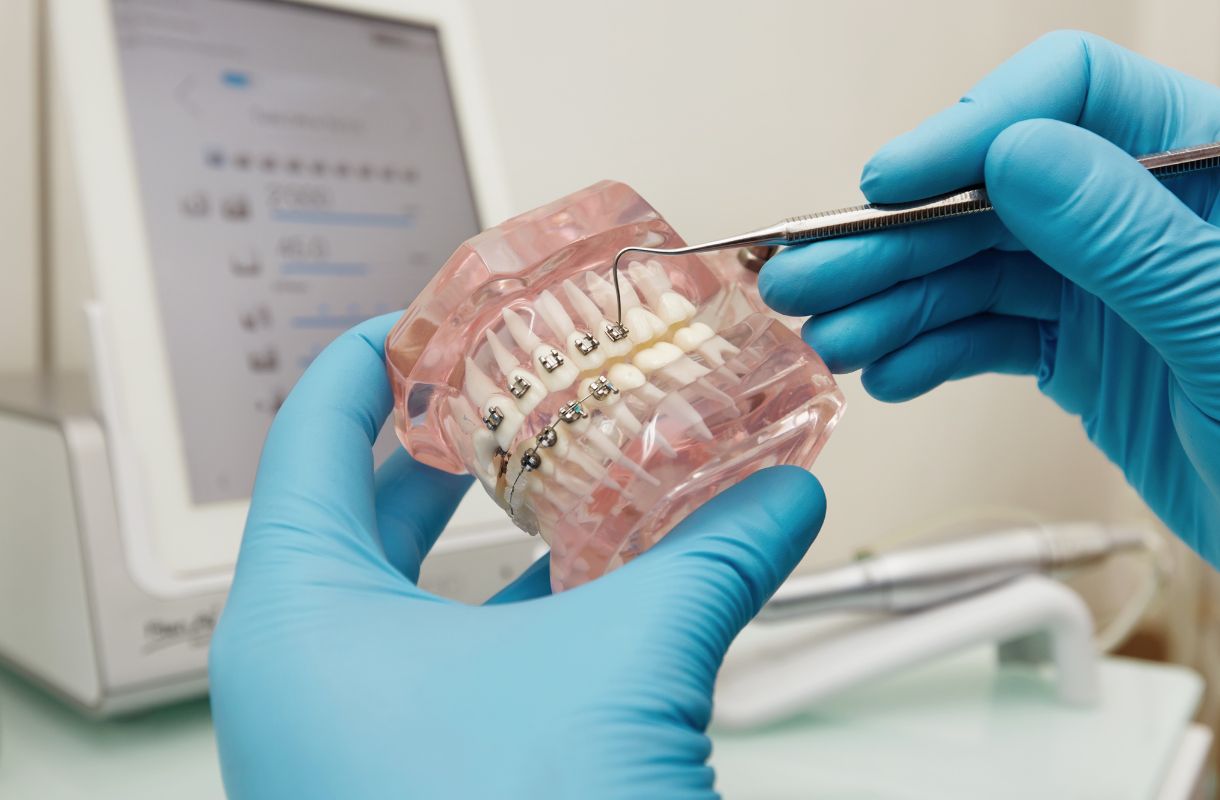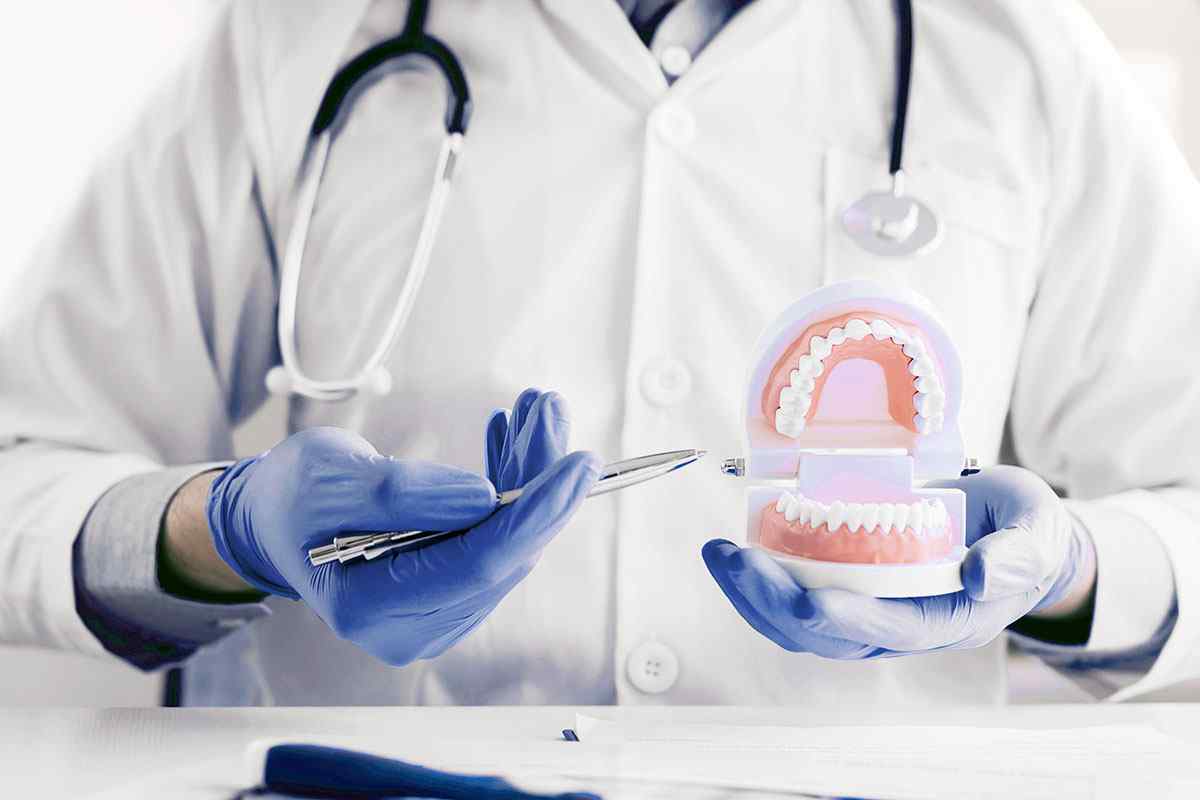What is
Deep Cleaning?
Deep cleaning, also called scaling and root planing, is a non-surgical procedure that removes plaque and tartar buildup from below the gum line.
It’s typically recommended when periodontal pockets – spaces between your teeth and gums – become too deep due to gum disease.
The Two-Step Process
- Scaling: Removal of plaque and tartar from tooth surfaces and beneath the gum line
- Root Planing: Smoothing of root surfaces to eliminate rough spots and infected tooth structure
When is Deep Cleaning Necessary?
Your dentist may suggest a deep cleaning if you show signs of:
Chronic Bad Breath
Persistent bad breath, also known as halitosis, can be a sign of bacteria buildup below the gum line. If regular brushing and mouthwash don’t resolve the issue, it may indicate a need for deep cleaning.
Bleeding or Swollen Gums
If your gums bleed easily during brushing or flossing, or appear red and swollen, it’s often a sign of gingivitis or early-stage periodontitis. Deep cleaning can help remove the bacteria causing this inflammation and promote gum healing.
Loose Teeth
As gum disease progresses, it can cause the supporting structures of your teeth to weaken, resulting in tooth looseness. Deep cleaning can help halt this progression and potentially save your teeth from further mobility or loss.
Receding Gums
Gum recession exposes the roots of your teeth, making them more susceptible to decay and sensitivity. Deep cleaning can help stop the recession process and prevent further damage to your gum tissue and tooth roots.
Periodontal Pockets Deeper Than 4mm
Healthy gums typically have pockets measuring 1-3 mm deep. Pockets deeper than 4mm can harbor harmful bacteria that regular brushing can’t reach. Deep cleaning is essential to clean these pockets and prevent further deepening, which could lead to tooth loss.
The Deep Cleaning Procedure
Now, let’s take a closer look at the procedure:
Before the Treatment
Your dentist will conduct a thorough examination, which may include:
- Reviewing your medical history
- Taking X-rays to assess bone loss
- Measuring the depth of periodontal pockets
During the Procedure
- Local anesthesia is applied to ensure comfort
- Special instruments are used to remove plaque and tartar
- Root surfaces are smoothed to promote healing and prevent future buildup
- The process may be completed in one or multiple visits, depending on the extent of the treatment needed
After Deep Cleaning
- You may experience some sensitivity and discomfort for a few days
- Your dentist might prescribe antibiotics or recommend an antimicrobial mouthwash
- A follow-up appointment will be scheduled to assess healing and measure pocket depth
Benefits of Scaling and Root Planing
Scaling and root planing is a deep cleaning procedure that can help treat gum disease and improve overall oral health. Some of the benefits include:
Halts Gum Disease Progression
Scaling and root planing effectively removes the bacteria causing gum disease. This stops the infection from advancing and allows your gums to heal.
Reduces Gum Inflammation
The procedure eliminates irritants causing gum inflammation and bleeding. As a result, your gums become healthier and more resilient to future infections.
Eliminates Bad Breath
By removing bacteria-laden plaque and tartar, the treatment addresses a major cause of halitosis. This leads to fresher breath and improved oral hygiene.
Protects Tooth Roots
Cleaning below the gum line safeguards exposed tooth roots from decay. This protection is crucial for maintaining the structural integrity of your teeth.
Prevents Tooth Loss
By treating gum disease, the procedure helps preserve the bone supporting your teeth. This significantly reduces the risk of tooth loss due to advanced periodontal disease.
Cost of Deep Cleaning in India
The cost of deep cleaning, which includes scaling and root planing, can vary depending on several factors such as the severity of the condition, the dentist’s expertise, and the location of the dental clinic. Here’s an overview of the costs in India:
- Basic teeth scaling: ₹800 – ₹3,500
- Deep cleaning (scaling and root planing): ₹1,500 – ₹5,000
It’s important to note that these are approximate ranges, and the actual cost may vary.
FAQs
How long can I go without a deep cleaning?
It depends on your oral health, but generally, if you have gum disease, you shouldn’t delay deep cleaning. Regular check-ups will determine if and when you need it.
Can I drink water after deep cleaning?
Yes, you can drink water immediately after a deep cleaning. In fact, it’s beneficial for your oral health.
How effective is deep cleaning?
Deep cleaning is very effective in treating gum disease, reducing inflammation, and improving overall oral health when combined with good oral hygiene practices.
Can I rinse after deep cleaning?
Yes, but follow your dentist’s specific instructions. They may recommend salt water rinses or a special mouthwash.
Is there a risk of infection after deep cleaning?
While the risk is low, there’s always a slight chance of infection after any dental procedure. Follow post-treatment care instructions carefully to minimize this risk.
Periodontics
Get In Touch With Us
Call us
+91 9676100045 - Punjagutta
+91 7702425551 - Hitech City
+91 7702425551 - Hitech City
Email us
reception@smiline.com
Book An Appointment
Book a visit to Smiline, simply fill out the form below and we will contact you back regarding the intervention you require.



